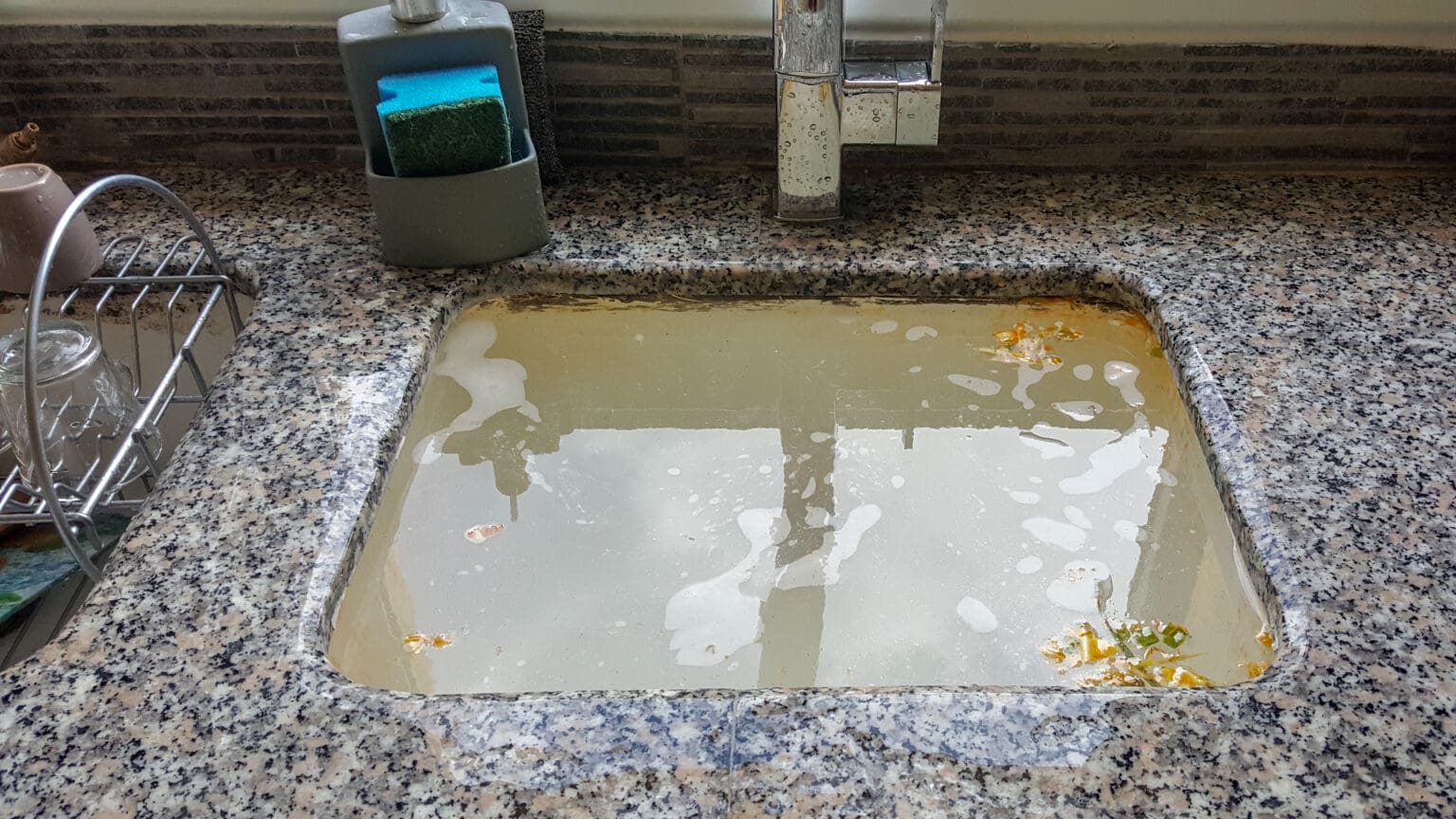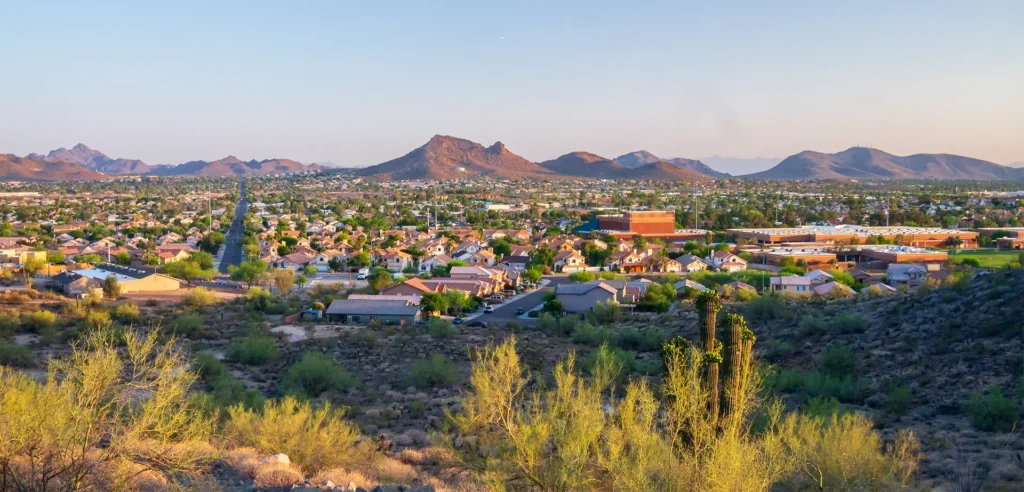If you’re a current or potential Phoenix homeowner, you’ve probably heard a lot about hard vs. soft water. Everyone seems to have an opinion, but not every person you talk to is well-informed on the subject. There are a lot of myths out there, and as a consequence, hard water sometimes gets a bad rap. But the truth is, hard and soft water each has pros and cons.
When you own a home, you can decide which type you want. Most homes run hard water unless you install a softener. Since this can be a big investment and it would permanently change which kind of water you have access to, it’s essential that you carefully consider which type works best for you.
The Chemical Differences
The difference between hard and soft water is a matter of chemistry. The most important thing to remember is that while hard water may have more “stuff” in it than soft, it’s not dirty or contaminated. In most instances, groundwater is hard because it comes into contact with minerals on its journey to your tap.
The “hardness” of water is actually a scale; the higher the concentration of minerals, the harder the water. So what is soft water? Water is considered soft when it contains less than 17 mg/L of minerals. The U.S. Geological Survey has created a table with which you can determine where your water falls on the scale:
- 181 mg/L or more is considered very hard
- Between 181 mg/L and 121 mg/L is considered hard
- Between 61 mg/L and 120 mg/L is considered moderately hard
You may be wondering about these “minerals” we keep mentioning. Although water can hold trace amounts of iron and manganese, the most prominent minerals are magnesium and calcium. These are the most likely to end up in your water because the rocks which contain them are “soft” and easily eroded, thereby releasing molecules.
Not sure how hard your water is? There are many kits you can purchase to test the mineral concentration. You can also contact a plumbing professional like Day & Night Air Conditioning and Plumbing to administer such tests.
What is Hard Water and How is it Made Soft?
How do you remove minerals from hard water? In specific cases, you can boil water to make it soft. However, this only works if the minerals are bicarbonate. When bicarbonate minerals are present, and you raise the temperature past the boiling point, carbonate forms, and precipitates out.
Calcium and magnesium sulfates or chlorides, on the other hand, cannot be boiled away. Unfortunately, many water sources contain these particular minerals. Therefore, it requires a different softening process.
Water softeners are a common sight in many homes and businesses. These appliances are can easily fit in a garage or storage closet, and are usually installed close to the water heater. Before your water goes to any of your faucets, it gets filtered through the softener. The tank contains either potassium or sodium, which exchange places with calcium and magnesium. The water then flows into the rest of the building to be used for drinking, bathing, and cooking.
The Effects of Drinking Hard or Soft Water
The water’s hardness does not affect whether it’s safe to drink. Water across the hardness scale can be safe or dangerous depending on its levels of bacteria, lead, and other contaminants. As long as your water is adequately filtered, you can enjoy a glass without concern.
So is there a difference between hard and soft water when it comes to consumption? Yes, there is. It turns out the high levels of magnesium and calcium are actually good for you. The National Research Council even encourages hard drinking water, as humans need both of these minerals to be healthy.
You may also notice that hard water tastes better. This may seem counter-intuitive, but remember that soft water isn’t “purified” of minerals. It just has different kinds, namely sodium. This can lead to a slight saltiness that many people find unpleasant. Beyond that, most people prefer the taste of water that contains minerals. You can even purchase specially prepared mineral water in most stores.
The Effects of Bathing in Hard Water
It may surprise you, but which water you shower with can make a real difference. For instance, soap binds to hard water more easily, which means it washes suds away more thoroughly. In contrast, soft water sometimes leaves people feeling like there’s a film of soap scum on their skin, even though they’ve washed all the suds away.
The most drastic difference, however, is how each affects your hair and skin. The minerals left behind by hard water can have a drying effect, making your hair feel crunchy or brittle. It’s even harsher on the skin and can potentially create several problems:
- Itchiness
- Irritation
- Acne
Hard water is especially tough on color-treated hair. It’s more likely to wash out coloring since the chemicals may bind to the minerals. People with permed hair may also face issues.
Overall, soft water is usually gentler on skin and hair since it’s much less likely to leave a problematic residue. However, if your water is too soft, it can have negative effects — namely greasy or limp hair.
How Does Hard Water Effect Your Plumbing
You may hear that hard water destroys your plumbing. This may have been common once, but changes to plumbing installation mean you probably don’t have to worry about this.
Before the 1970s, many buildings had galvanized steel plumbing. As a result, calcium and magnesium would stick to the steel and gradually build up, until the flow of water was drastically reduced. Today’s buildings generally have copper pipes, which don’t chemically bind to minerals in the same way.
If you’re looking to purchase a home built before 1975, you should check if it’s been re-piped. If not, you’ll need a water softener or risk having to repipe your house in the future.
While hard water is often (and unfairly) blamed for plumbing problems, it should be noted that soft water presents its issues. If the sodium or potassium content is too high, it can corrode even copper pipes, leading to leaks.
How Does Hard Water Effect Your Appliances
Although hard water doesn’t usually affect modern plumbing, your appliances are another story. When it runs through a refrigerator, washing machine, or dishwasher, the residue left behind can cause the same problems that once plagued steel plumbing. You may end up having to repair or replace major appliances more often, which can have a significant impact on your budget.
You may also notice limescale on your fixtures and tile. This is typically more manageable, as there are many cleaning supplies on the market that specifically clear away limescale. However, you may end up cleaning more often than you like and, depending on the composition of your fixtures, have to replace faucets and drains sooner than you hoped.
The problems don’t end there: Your pots and pans aren’t safe from the harsh effects either. You may notice limescale accumulate on your favorite kettle over time, or mineral deposits dried onto the dishes you put through the dishwasher.
Soft water poses none of these dangers, though of course, you should keep corrosion in mind. If you live in an area with hard water, you may have to get a softener to avoid going through a boiler every few years.
The Effects of Hard Water on Your Clothes
Just like hard water leaves residue on your hair, it also leaves mineral deposits on your clothes. This can lead to scratchy or itchy clothing, as well as fading and thinning material. You also run the risk of hard water, not mixing well with detergents.
Detergents contain their own chemicals, which are what clean your clothes. Depending on the type of detergent you’re using, the key ingredients may bind to the minerals instead of the dirt in the fabric, leaving you with laundry that isn’t fully cleaned. Mineral deposits in the washing machine may contribute to cleaning issues.
Hard water problems may lead people to put their clothes through several cycles, which consumes more water and energy and causes clothes to wear out faster. Soft water is vastly superior when it comes to laundry, as it doesn’t interfere with detergent in any way.
The Final Verdict
With the evidence laid before us, it’s time to issue a verdict. Which is better: hard or soft water?
Unfortunately, there’s no simple answer. The choice ultimately depends on where your water falls on the hardness scale.
If your regular water is only slightly to moderately hard, it may be wise to leave it be. There are many benefits to drinking mineral water, and you may not notice any difference to your skin, dishes, or appliances.
However, some areas, such as Arizona’s East Valley, have hard water. If you live here, you may not have much of a choice about buying a water softener — the price of installation is likely much less than the cumulative cost of replacing major appliances, buying moisturizing treatments for dull skin and hair, and replacing your dishes and clothes regularly.
Day & Night Air Conditioning and Plumbing is here to cover all your plumbing and AC needs, whether you have an emergency for just need a little maintenance. We offer water softener installation for homes in the Phoenix area. To request an appointment or to learn more about our services, contact us online or call 602-492-9656.






